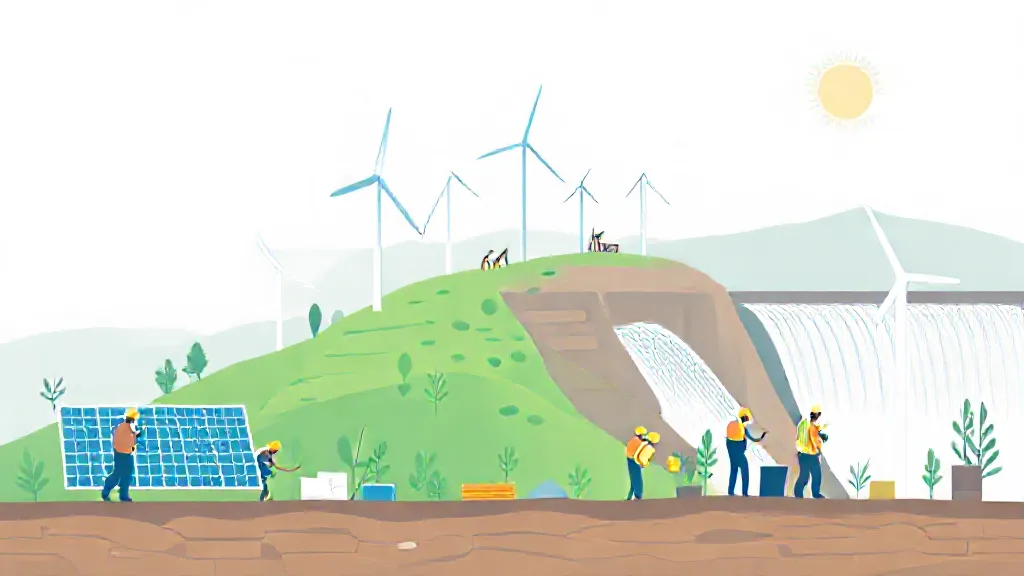The transition from fossil fuels to renewable energy sources is not only crucial for environmental sustainability but also a significant driver of job creation. As countries around the world commit to reducing carbon emissions and investing in clean energy technologies, the renewable energy sector has emerged as a vibrant source of employment opportunities. This article delves into how renewable energy creates jobs, the types of jobs involved, and the broader economic implications.
The Growth of the Renewable Energy Sector
The renewable energy sector has experienced unprecedented growth over the past decade, driven by technological advancements, policy support, and increasing public awareness of climate change. According to the International Renewable Energy Agency (IRENA), the global renewable energy workforce reached 12 million jobs in 2020, a number that is expected to continue rising as investments in solar, wind, and other renewable technologies expand. This growth is particularly evident in countries that have set ambitious renewable energy targets, such as Germany, China, and the United States.
Diverse Job Opportunities in Renewable Energy
Renewable energy creates a wide range of job opportunities across various sectors. This includes roles in manufacturing, installation, maintenance, and research and development. For example, solar energy jobs encompass solar panel manufacturing, installation technicians, and system designers, while wind energy jobs involve turbine manufacturing, site assessment, and maintenance services.
The diversity of roles means that individuals from various educational backgrounds and skill levels can find employment in this burgeoning field.
Economic Impact Beyond Job Creation
The economic impact of renewable energy extends beyond job creation. Investments in renewable technologies stimulate local economies by creating demand for materials, services, and infrastructure development.
For instance, the construction of solar farms or wind parks requires local labor, materials, and services, thereby benefiting nearby businesses and communities. Moreover, renewable energy projects often lead to increased energy independence and stability, which can further bolster local economies.
The Role of Government Policies
Government policies play a crucial role in fostering job creation in the renewable energy sector.
Incentives such as tax credits, subsidies, and renewable energy mandates encourage businesses to invest in clean energy technologies. For instance, the U.S.
federal Investment Tax Credit (ITC) has significantly boosted solar energy deployment, leading to thousands of new jobs in the industry. Similarly, feed-in tariffs in countries like Germany have supported the growth of renewable energy by guaranteeing fixed payments for energy produced from renewable sources.
Training and Education for a Green Workforce
As the renewable energy sector grows, so does the need for a skilled workforce.
Educational institutions and training programs are increasingly focusing on preparing individuals for careers in renewable energy. Community colleges, vocational schools, and universities are offering specialized programs in renewable energy technology, energy efficiency, and sustainable practices. This emphasis on education ensures that the workforce is equipped with the necessary skills to meet the demands of the industry.
Challenges and Considerations
Despite the positive outlook for job creation in renewable energy, challenges remain. The transition from fossil fuels to renewable sources can lead to job losses in traditional energy sectors, such as coal and oil. It is essential for policymakers to implement just transition strategies that support workers affected by these changes, providing retraining and support to help them transition into new roles within the renewable sector.
The Future of Renewable Energy Jobs
Looking ahead, the future of jobs in renewable energy appears promising. The ongoing global push for sustainability and the increasing urgency to address climate change will likely drive further investments in renewable technologies. According to a report by the World Economic Forum, the shift toward a greener economy could create 24 million new jobs globally by 2030.
This potential for job creation underscores the importance of supporting and investing in renewable energy initiatives.
Conclusion: A Sustainable Path to Employment
In conclusion, renewable energy is poised to be a cornerstone of future job creation and economic growth. By investing in clean energy technologies, countries can not only combat climate change but also provide meaningful employment opportunities for millions of people.
As the world transitions to a more sustainable future, the renewable energy sector will play a vital role in shaping the economy and creating a resilient workforce.
